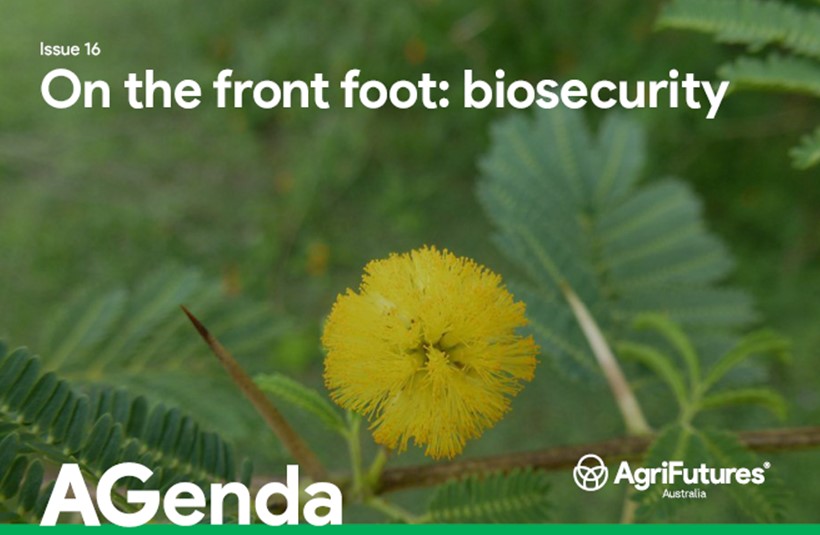|
Welcome to the September issue of AGenda,
From the farm to the shipping container to the supermarket shelf, strong biosecurity underpins our sector’s success. In issue 16 of AGenda, we explore the research projects from around the business that are identifying biosecurity risks to the agriculture, fisheries and forestry sector, and the work being undertaken to reduce their impact.
From the fight against fall army worm to the findings from six years of research into Q fever to finding cost effective solutions to weed management, we highlight a number of biosecurity issues that have impacted Australians recently and demonstrate how collaboration and stakeholder engagement at a national and international level are helping keep Australian shores safe.
|
|
|
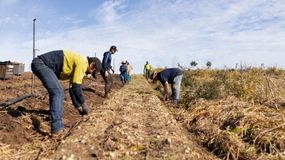
|
|
Fall armyworm meets its match in Ginger industry
|
|
It’s been nearly two years since fall armyworm was first detected in Australia, and in that time the pest has made its presence felt. With the ability to travel vast distances of up to 100 kilometres overnight, and an appetite for summer crops, the fall armyworm can devour large quantities of crops – including ginger – in a matter of days.
Quick action taken by the Australian Ginger Industry Association and AgriFutures Australia has meant not only is the pest being closely monitored, but more importantly, growers are prepared for new incursions and equipped to keep an outbreak under control.
|
|
|
|
|
|

|
|
Getting smarter with biosecurity
|
|
"What we have available for Australian producers facing the challenge of biosecurity in 2022 is a unique combination of useful information tailored to every industry and innovative technologies that can be deployed to work smarter, not harder. What we need now is for Australian producers to take action and use the tools available at hand to protect our great country."
According to AgriFutures Australia's General Manager, Business Development, Michael Beer, Australia has been at the forefront of biosecurity for a long time and while we are well protected as an island, it pays for us to stay vigilant.
|
|
|
|
|
|
|
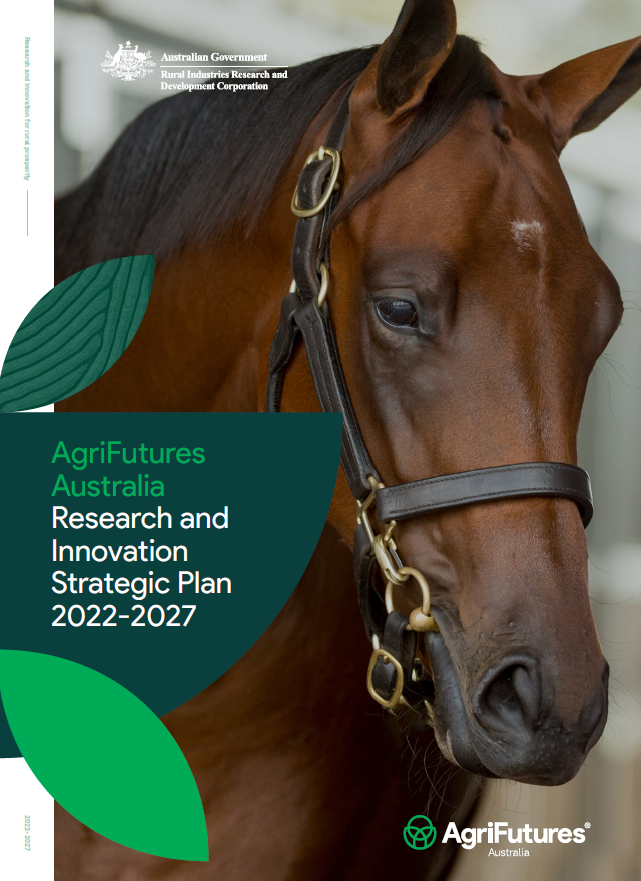
|
|
|
AgriFutures Australia launches progressive new 16:5:5 Roadmap
|
|
We are delighted to share with you our AgriFutures Australia Research and Innovation Strategic Plan 2022-2027 .
Our 16:5:5 Roadmap clearly signals the priorities we must focus on to drive value and ensure, together with our levy payers, industry bodies and other stakeholders that we prepare for, and thrive into the future.
We would like to thank our industry partners and stakeholders for the valuable role they played in helping us clearly define our key strengths, opportunities for improvement and priorities for the next five years.
|
|
|
|
|

|
|
Local landholders to benefit from global search for weed biocontrol agents
|
|
The second phase of a major Australian Government Department of Agriculture, Fisheries and Forestry Rural R&D for Profit project is making significant headway in finding biocontrol solutions for more cost-effective weed management.
For target weeds, which cost the Australian primary industries sector more than $400 million each year, significant progress has been made in host-specificity testing and risk assessments of identified biocontrol agents, as well as targeted releases of approved agents and analysis of integrated control methods.
|
|
|
|
|
|

|
|
Q fever findings a timely post-pandemic reminder for biosecurity vigilance
|
|
After more than six years of multi-disciplinary research, the Q Fever Group has released the findings of its flagship research project, Taking the Q (query) out of Q fever.
These research outcomes are particularly timely given the range of biosecurity issues that have impacted Australians recently. From the COVID-19 pandemic to the NSW Varroa mite incursion and threat of foot-and-mouth disease, the community is more aware than ever of the risks of diseases and how they can impact our economy and our health.
1
|
|
|
|
|
|
|

|
|
|
2022 AgriFutures Rural Women's Award Finalists
|
|
In this mini podcast series, we hear from our 2022 AgriFutures Rural Women's Award Finalists, including 2022 AgriFutures Rural Women's Award Winner Stephanie Trethewey and Runner-Up Kimberley Furness.
From online farm fitness classes to distance education support programs, these seven inspirational women are pouring their energy and knowledge into better connecting our rural communities. Download these episodes to your playlist and enjoy their inspirational stories.
|
|
|
|
|
What are other people saying?
|
|
|

|
|
How to feed 10 billion people challenge
|
|
“The only way we’re going to be able to solve a problem the size of this one is to work together. A lot of the time people suffocate an idea with an embrace and do it all alone, holding onto the belief that they don’t need anybody else and they’re smarter than everybody else. But when we start a proper conversation and get other people involved that’s when we start opening up other nodes to make it happen" - Phil Morle, Partner, Main Sequence Ventures.
|
|
Read more >
|
|
|
|
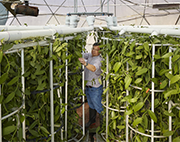
|
|
Innovative vanilla dome ready to scale Aussie production
|
|
“I was curious why we don’t grow vanilla in Australia at scale. But it didn’t take long to uncover. As soon as I started to address one challenge around scaling to commercial production, another appeared. And another. Domes are humanity’s most efficient super structure – and an obvious choice for a greenhouse design. Domes naturally maintain a more consistent temperature” - David Soo, Founder, Australian Vanilla Plantations.
|
|
Read more >
|
|
|
|
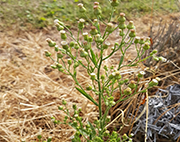
|
|
New fungus to help landholders fight fast spreading weed
|
|
“As flaxleaf fleabane has developed resistance to some herbicides, we hope that the biocontrol agent will be effective in reducing its populations. We identified a rust fungus called Puccinia cnici-oleracei in Colombia which infects flaxleaf fleabane and restricts it from growing by destroying the plant's tissues. The fungus can only infect flaxleaf fleabane, while all non-target plant species tested were resistant to it” - Dr Ben Gooden, Weed Ecologist, CSIRO.
|
|
Read more >
|
|
|
|
|
